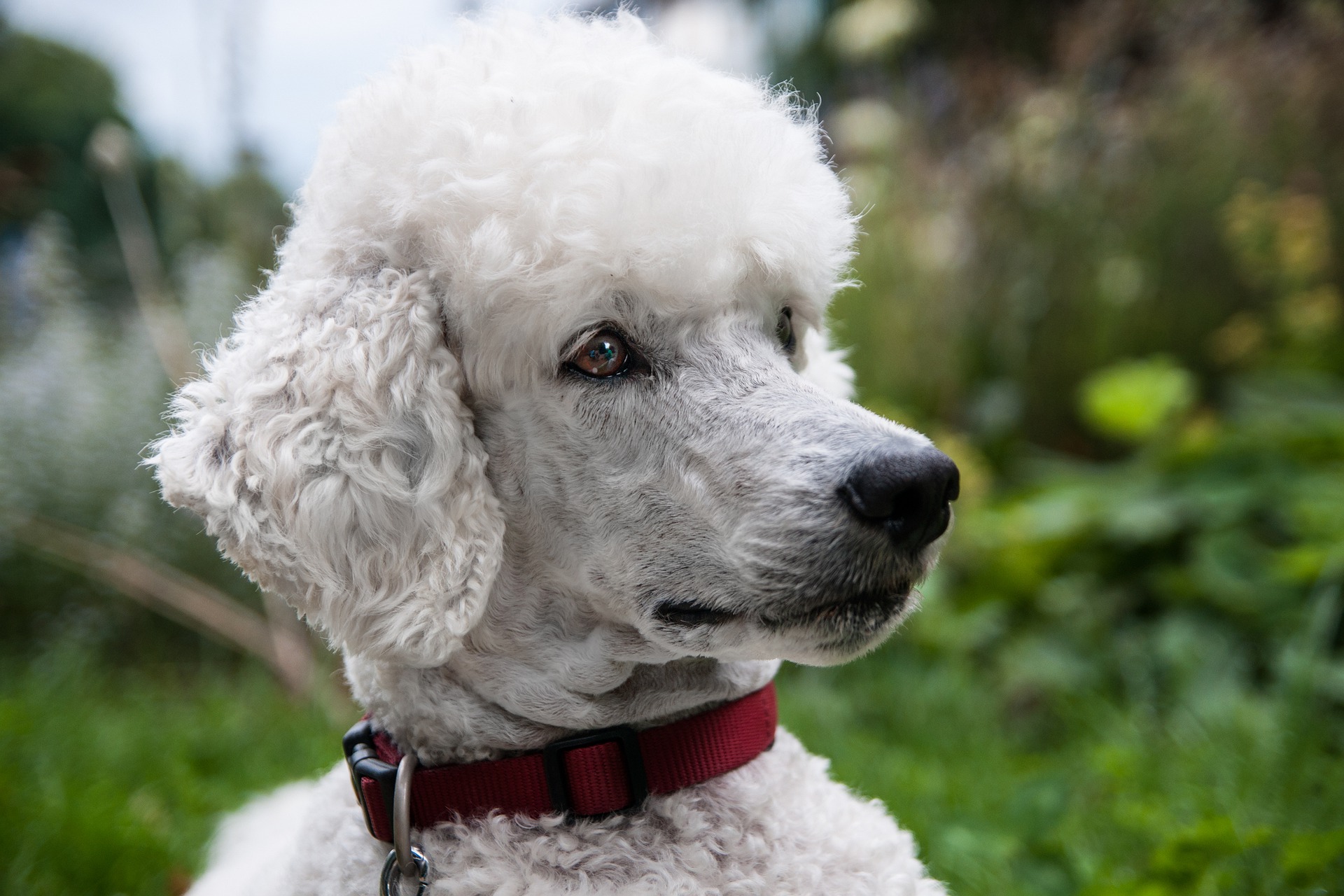
The Most Popular Dog Collars
What are the most popular and the best dog collars for your dog? Always consider comfort, safety and ease of use when considering a collar for your dog.
- Flat Collar
Pretty much every pet parent is familiar with a flat collar—it’s the most common type of collar, and the gold standard.
Ideally, once your dog knows his boundaries and it trained, the most common and widely used flat collar is the preferred collar for your dog.
A dog that is well behaved and trained should be able to be walked with the common flat collar.
Flat Collar Tip: Do not pull or tug your dog when he is wearing a flat collar. It should just be a devise that knows you are connected with your dog.

- Head Collar
A dog head collar is like a halter collar. It can make it easier to tug and get your dog’s attention as it connects over your dog’s snout and behind his ears. It makes your dog feel safe.

- Dog Harness
There are two main types of harnesses: a front-clip harness, where the leash attaches at your dog’s chest, and a back-clip harness, where the leash attaches on your dog’s back. Many of today’s modern harnesses conveniently have both.
A front clip harness attaches the leash to the harness on your dog’s chest.
A back clip harness attached to the back of the harness on the dogs upper back.
The benefit of a harness is that there is no pressure on tugging on your dog’s neck. The only issue may be with aggressive dogs that pull to hard and may hurt their back.

- Pinch (Prong) Collar
This is one of the more controversial collars—some claim if used properly, it’s the perfect training tool, while others claim the collar hurts dogs and is abusive.
This collar is very controversial. While many praise it as the perfect training collar is used correctly, many feel that it causes pain and improper use can be abusive. It is especially important that this type of collar be fitted properly. The prong collar should only be used for corrections.

- Slip Collar
Easy to physically overpower a strong, untrained dog. You will see slip collars at shelters and vet offices in situations where for safety’s sake, untrained or extremely unhappy dogs must be controlled by their human caretaker, willing or not.

Summary
When you are deciding what kind of collar to use for your dog consider the type of dog your have and the collar that will best control your dog and his habits and personality. If you have a troublesome dog it is always advisable to get professional training.